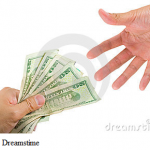 The Commonwealth Fund has published yet another survey comparing health care in the United States to health care in other countries. The title emphasizes US Adults Still Struggle With Access To And Affordability Of Health Care.
The Commonwealth Fund has published yet another survey comparing health care in the United States to health care in other countries. The title emphasizes US Adults Still Struggle With Access To And Affordability Of Health Care.
Really? As I’ve previously written, I agree fully with the Commonwealth Fund scholars that health care in the U.S. is inefficiently delivered and over bureaucratized. Nevertheless, suggesting U.S. health care is the worst overall is not consistent with the data.
The latest survey compares 11 developed democracies. The relationship between government control of health care and various measures of health status is not at all clear, despite other countries having so-called “universal” health systems.
When it comes to actual access to care, 35 percent of low-income Americans (with household incomes below one half the median income) had to wait six or more days to see a primary-care doctor or nurse the last time they needed care. However, so did 38 percent of low-income Germans and 32 percent of low-income Swedes.
Read More » »
 On the day of his inauguration, President Trump took time out to issue an executive order directing his administration to drag its feet enforcing provisions of the Patient Protection and Affordable Care Act (ACA). Regulators were instructed to “waive, defer, grant exemptions from, or delay…” whenever possible to the “maximum extent of the law.” Many believe this move was intended to destabilize the ACA and hasten its demise without Republicans getting blamed.
On the day of his inauguration, President Trump took time out to issue an executive order directing his administration to drag its feet enforcing provisions of the Patient Protection and Affordable Care Act (ACA). Regulators were instructed to “waive, defer, grant exemptions from, or delay…” whenever possible to the “maximum extent of the law.” Many believe this move was intended to destabilize the ACA and hasten its demise without Republicans getting blamed.





